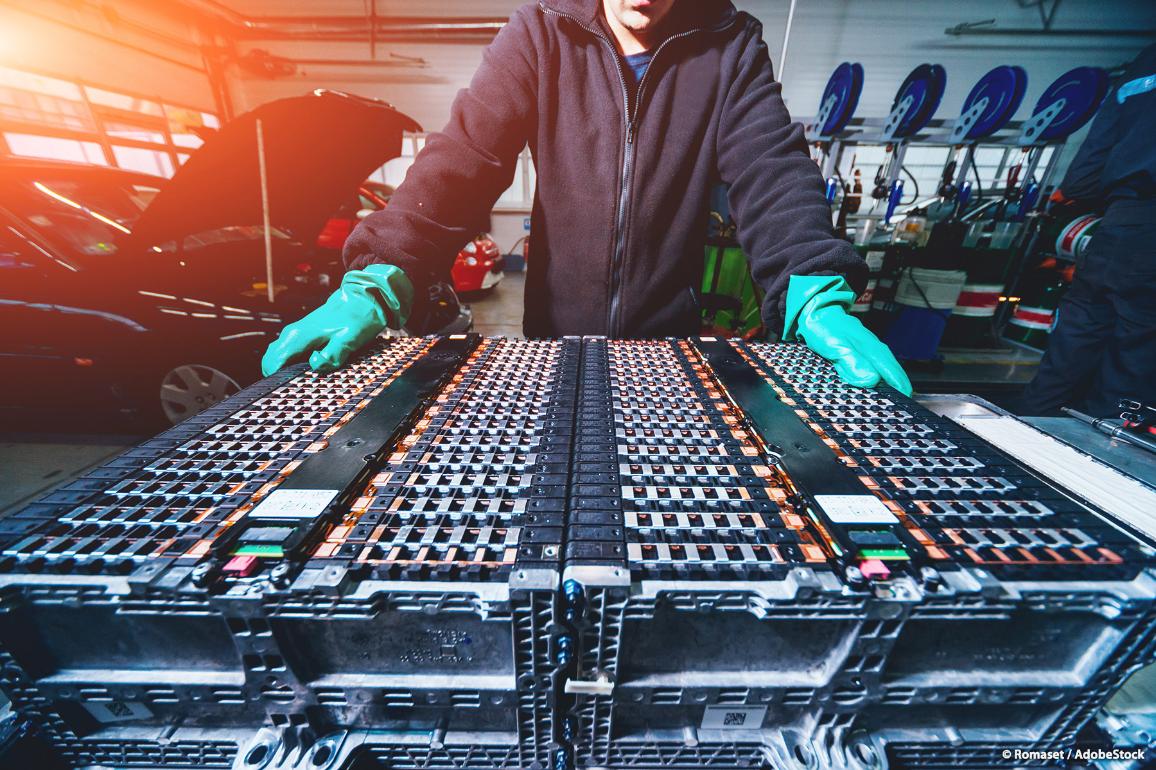Lithium, because the EU makes battery producers tremble

The European Commission could classify lithium as a toxic substance of high concern. But the metal is essential for batteries, and therefore for the success of the ecological transition. Here are details, statements and risks
The European Commission is examining a proposal from France for the inclusion of three lithium salts as a Category 1A toxic substance. At the end of last year, ECHA's Risk Assessment Committee, the European Chemicals Agency, said it shared the French position: lithium carbonate, lithium hydroxide and lithium chloride should be included among substances that can damage fertility and nursing babies.
LITHIUM AND THE ENERGY TRANSITION
The possibility of a classification of lithium as a toxic substance has however alarmed the industry associated with this metal, which is essential for the construction of batteries for electric vehicles and for the storage of electricity from renewable sources. The ambitious climate-energy agenda of the European Union, moreover, provides precisely for the creation of an internal supply chain of batteries and the metals necessary for their realization , in order to strengthen the economy of the block and reduce dependence on China for supplies. of raw materials and strategic devices.
The European Commission will comment on lithium toxicity between October and December next.
INVESTMENT UNCERTAINTY
Roland Chavasse, secretary general of the International Lithium Association, an association that brings together operators in the lithium value chain, told S&P Global that "the risk is that if lithium salts are mistakenly reclassified as 1A / SVHC, that it would introduce great uncertainty in planning the long-term commercial profitability of investments around these three salts ”.
A substance present in category 1A, in fact, is considered "of high concern" (the acronym is SVHC, which stands for substance of very high concern ) and its use would be subject to restrictions, as established by the European Union strategy for sustainable chemicals.
THE EU'S OBJECTIVES ON LITHIUM
As Rystad Energy recalls, the European Union wants to increase its share of lithium carbonate production for batteries from the current 0 per cent to 8.3 per cent of the world total by 2025. It has similar targets on hydrogen hydroxide. lithium, less common than carbonate but used to make longer-lasting batteries for electric cars.
"Therefore," added Chavasse, "if one of these three lithium salts were to be incorrectly classified as 1A and be included in the SVHC, there could be significant undesirable consequences for investments in their use in the European Union, thus questioning the long-term profitability of the production, refining, use and recycling of lithium in the member states of the Union ”.
GREEN DEAL AT RISK?
Giorgio Corbetta, director of European affairs for EUROBAT, the European association of automobile and battery manufacturers, told S&P Global that “we battery manufacturers, together with the complex industries of inorganic color pigments, lubricants and greases and vehicles, are concerned that an unjustified 1A classification would have a strong impact on investments in the lithium value chain in Europe and would make the achievement of the Green Deal objectives unrealistic ”.
The Green Deal is the European Commission's plan for the reduction of greenhouse gas emissions, the implementation of which provides for a greater diffusion of electric cars and a sharp increase in the installations of renewable energy plants: in both cases, lithium is a material first essential.
IMPROBABLE CLASSIFICATION?
According to Ledoux Pedailles, executive of the mining companyVulcan Energy Resources , it is "rather unlikely that, given the European Union's objectives of becoming self-sufficient in the production of lithium-ion batteries for electric vehicles by 2025, to aim for 80 percent of domestic lithium production over the next five years, to aim for 35 percent recycling of lithium by 2029, [it is unlikely] that [the Commission] will approve a proposal that can be considered counterproductive. "
SPECIAL EXEMPTION?
According to Pedailles, even if the Commission does not reject the French proposal, it could still grant a special status to some member states, allowing them to raise the 1A classification of the three lithium salts for some specific industries (batteries, in fact). He gave the concrete example of cobalt, which “already falls into this category (along with 850 other products) and is consumed daily in batteries in Europe. However, it is true that [classification 1A, ed .] Could have an impact brought about by additional costs for control, processing, packaging and storage ".
Roland Chavasse added that "an internal battery supply chain is a major strategic goal of the European Union, and this potential reclassification adds a lot of long-term financial uncertainty to the massive investments needed" to make it happen.
THE CONSEQUENCES
Rystad Energy argues that including the three lithium salts as a toxic substance will not stop the use of the metal, but will likely impact at least four stages of the European battery value chain: mining, processing, cathode production (they are the positive electrodes of batteries) and recycling. Furthermore, it is possible that the negative connotation of lithium could further reduce public support for the opening of new mines.
The final risk, according to Vulcan Energy Resources, is that the European classification could lead to a further concentration of the lithium refining process in China, increasing both the country's dominance over this industry and the condition of European dependence.
HOW ARE THE PRICES OF LITHIUM
Since the beginning of 2022 – reports S&P Global Platts – the prices of lithium carbonate and lithium hydroxide have grown respectively by 114.5 and 139.7 percent. The value of these salts on the North Asian market is around 72,500 and 76,000 dollars per ton.
This is a machine translation from Italian language of a post published on Start Magazine at the URL https://www.startmag.it/energia/unione-europea-litio-batterie/ on Tue, 05 Jul 2022 09:04:21 +0000.
